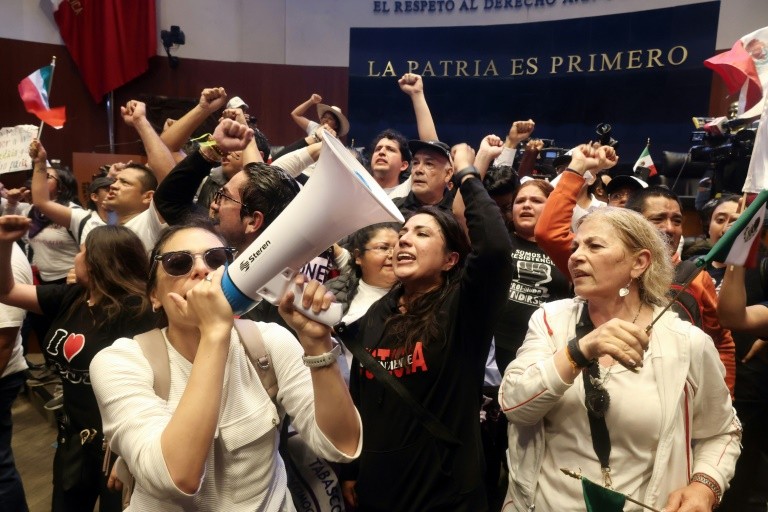
Mexico's Supreme Court agreed Thursday to consider a legal challenge against controversial constitutional reforms making it the first country to elect all judges by popular vote, irking the ruling party.
The majority vote in favor came despite a warning from one of the justices, Lenia Batres, who is close to the governing Morena party, that the top court was in danger of carrying out a "coup d'etat."
Senate president Gerardo Fernandez Norona, a member of Morena, said the Supreme Court "has proven its factional nature, assuming itself as the supreme power, above the legislative power, the executive power and, above all, the sovereign power: the people of Mexico."
"Nothing will stop the election of the judges in June 2025," he wrote on social media platform X.
The Supreme Court said in a statement that the decision reflected its "obligation to ensure the autonomy and independence of the judicial branch of the federation and its members."
The judicial reforms were signed into law in September by then-president Andres Manuel Lopez Obrador before leaving office.
Lopez Obrador warned the Supreme Court before the bill was passed by Congress that stopping the process would be a "flagrant violation" of the constitution.
The veteran leftist -- who was replaced on Tuesday by his ally Claudia Sheinbaum, Mexico's first woman president -- argued the reforms were needed to clean up a "rotten" judiciary serving the interests of the political and economic elite.
Critics said that elected judges could be swayed by politics and vulnerable to pressure from powerful drug cartels that regularly use bribery and intimidation to influence officials.
During his six years in office Lopez Obrador often criticized the Supreme Court, which impeded some of his policies in areas such as energy and security.
The judicial reforms have sparked diplomatic tensions with key economic partners, prompted a series of street protests and spooked financial markets.
The United States, Mexico's main trading partner, warned that they threatened a relationship that relies on investor confidence in the Mexican legal framework.








